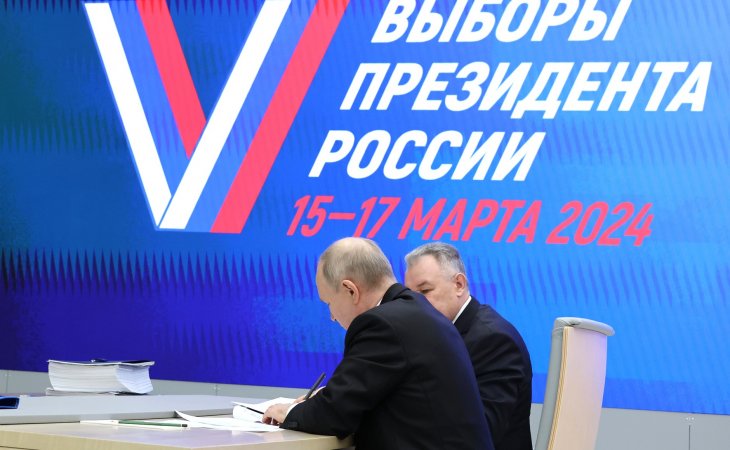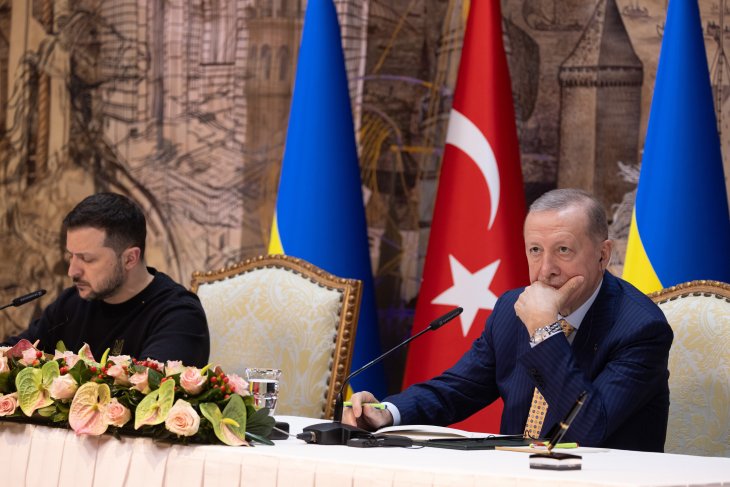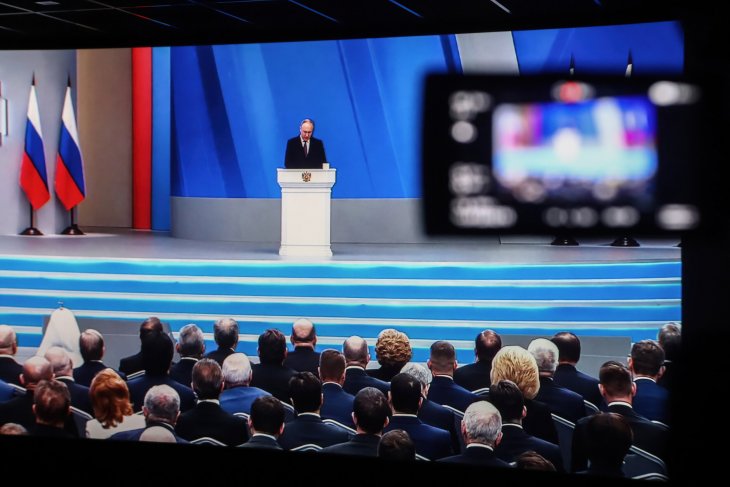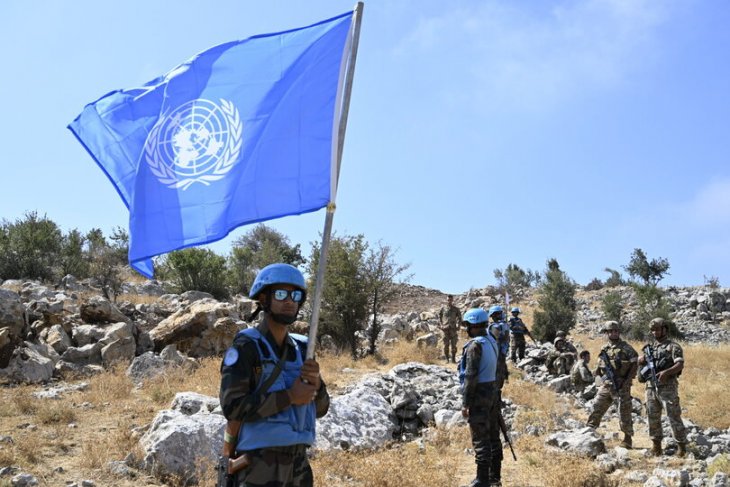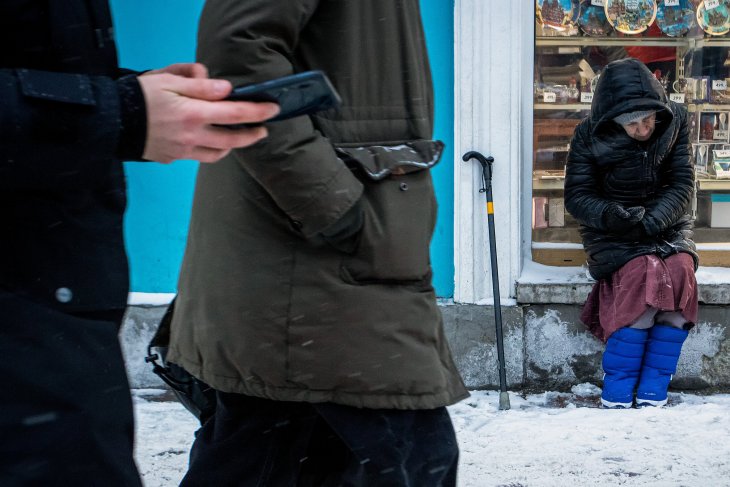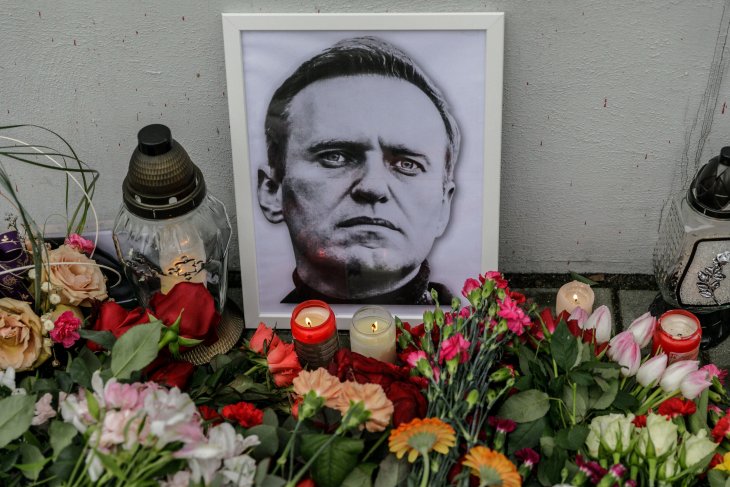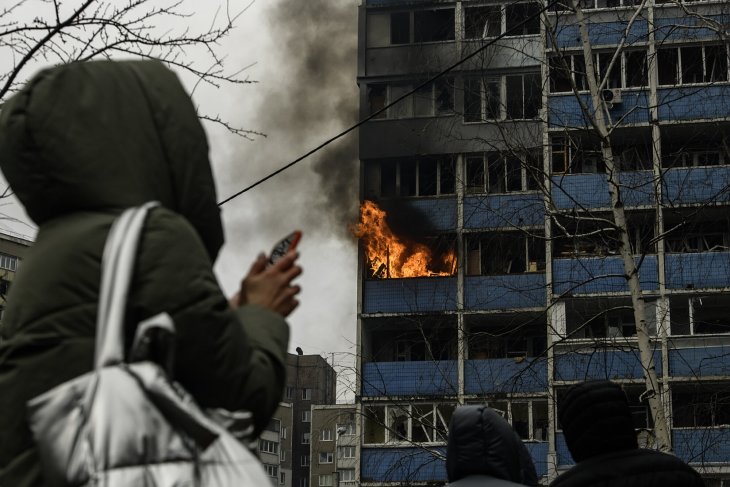The official results from last week’s Russian presidential election were precisely what the Kremlin ordered, but they have hardly brought the incumbent Vladimir Putin much satisfaction.
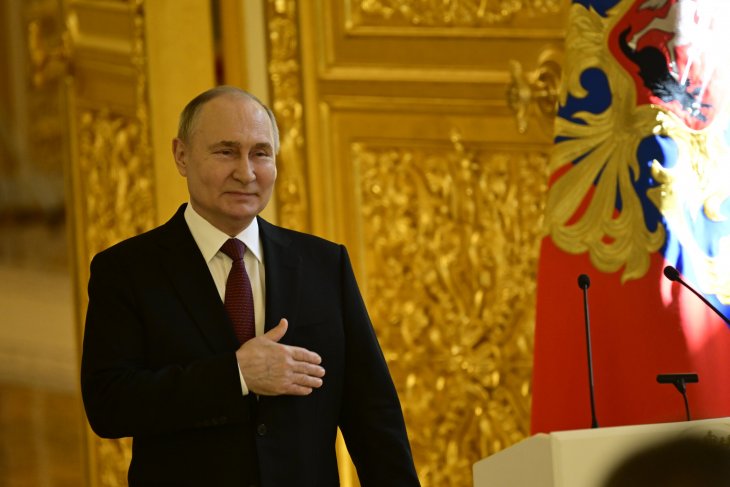
Vladimir Putin meets with election campaign activists at Kremlin in Moscow, Russia on March 20,2024. (Photo by Sefa Karacan/Anadolu via Getty Images)
Falsifications in the results were so blatant that Putin’s desire to prove overwhelming public support for the continuation of his autocratic rule has remained unfulfilled. Instead of discipling the political elites, he may have inadvertently informed them about the limits of his control and the infirmness of his grasp on power (Meduza, March 20).
Despite extra-tight administration and security measures, several surprises have exposed fragilities in the seemingly solid system of Putin’s power.Read More
